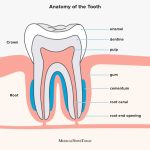Why Do Teeth Hurt When Eating Sweets: The Surprising Truth Behind Tooth Sensitivity
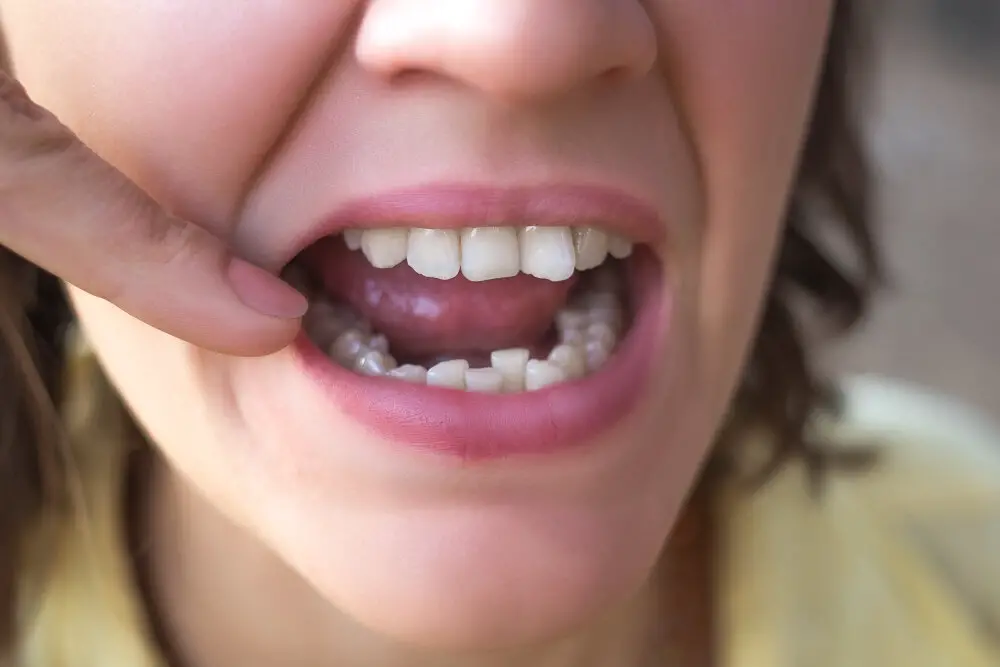
Tooth sensitivity is a common problem that affects millions of people worldwide. It is characterized by a sharp pain or discomfort when consuming certain foods and beverages, particularly those high in sugar content. One of the most common triggers of tooth sensitivity is sweets. Many individuals experience a sudden jolt of pain when biting into a sugary snack, leaving them wondering about the cause of these unpleasant sensations. In this article, we will explore the surprising truth behind tooth sensitivity and provide insights into why teeth hurt when eating sweets. While tooth sensitivity may seem like a minor issue, it can have a significant impact on an individual’s quality of life. It can make eating and drinking uncomfortable, and in severe cases, even painful. Tooth sensitivity is often caused by the exposure of the dentin layer of the tooth, which contains small tubes that connect to the nerves in the tooth’s pulp. When this layer is exposed, the nerves in the pulp can be stimulated by external stimuli such as hot, cold, or sweet foods, leading to pain and discomfort. Understanding the underlying causes of tooth sensitivity is essential for managing and treating this common condition.
Tooth sensitivity is a common dental problem that occurs when the protective layer of enamel on the teeth wears away, exposing the underlying dentin and nerve endings. This can cause a sharp, shooting pain or discomfort in the teeth when exposed to hot, cold, or sweet foods or beverages. Factors that contribute to tooth sensitivity include poor oral hygiene, gum disease, tooth decay, and teeth grinding. The pain can range from mild to severe and can significantly impact a person’s ability to eat and drink comfortably. Proper dental care, including regular brushing and flossing, can help prevent tooth sensitivity and maintain good oral health.
Tooth sensitivity is a common problem that affects many people worldwide. The condition is characterized by a sharp and sudden pain that occurs when consuming hot or cold foods or drinks, or even sweet treats. The pain is caused by the exposure of the tooth’s dentin, which is the layer of the tooth that lies beneath the enamel. When the dentin is exposed, it can cause a great deal of discomfort and pain. The surprising truth behind tooth sensitivity is that it can be caused by a variety of factors, including tooth decay, gum disease, and even brushing your teeth too hard. Understanding the causes of tooth sensitivity is crucial to finding effective treatments and preventing further damage to your teeth.
The Anatomy of Teeth
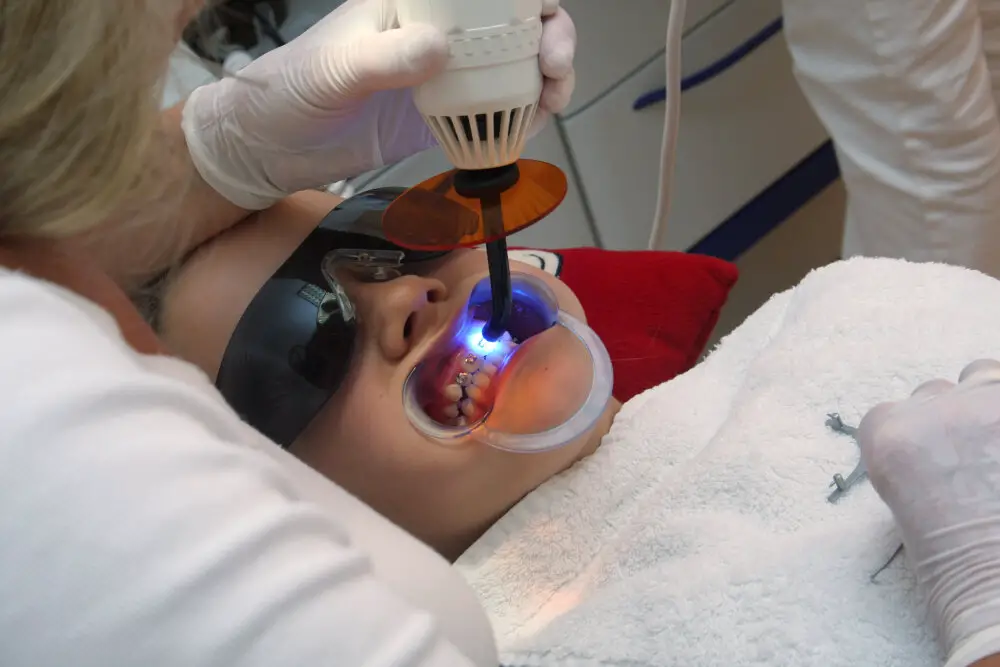
Teeth are an essential part of the human body, they are responsible for breaking down food to smaller pieces, allowing the digestive system to absorb nutrients efficiently. Teeth consist of two major parts, the crown and the root. The crown, visible in the mouth, is covered by enamel, the hardest substance in the body, which protects the underlying dentin from damage. The root anchors the tooth in the jawbone and is covered by cementum. Inside the tooth, there is a pulp chamber that contains nerves and blood vessels that nourish the tooth and provide it with sensitivity. The anatomy of teeth is complex and unique, with each tooth serving a specific function, and any damage or disease can cause pain and discomfort. Tooth sensitivity is a common dental problem that affects millions of people worldwide. It occurs when the enamel and dentin layers of a tooth are worn down or damaged, exposing the sensitive nerves underneath. The most common cause of tooth sensitivity is the consumption of sweet, acidic, or cold foods and drinks, which can trigger a sharp pain or discomfort in the affected tooth. Other causes of tooth sensitivity include tooth decay, gum disease, teeth grinding, and overbrushing. The anatomy of teeth plays a crucial role in understanding tooth sensitivity, as any damage or disease to the tooth’s structure can affect its sensitivity and cause pain. Proper dental hygiene, regular check-ups, and a healthy diet can help prevent tooth sensitivity and maintain good oral health.
Teeth are an essential part of the mouth that helps in breaking down food for digestion. The structure of teeth is complex and composed of different layers, including enamel, dentin, pulp, and cementum. Enamel is the outermost layer of the teeth, which is the hardest and most mineralized tissue in the human body. Beneath the enamel is the dentin, a sensitive layer that contains tiny tubules that communicate with the nerve endings in the pulp. The pulp is the innermost layer of the teeth, which contains blood vessels, nerves, and connective tissues. Cementum is a thin layer that covers the roots of the teeth and anchors them to the jawbone. Understanding the structure of teeth is crucial in identifying the causes of tooth sensitivity, which can lead to pain and discomfort when eating sweet foods or drinks.
Enamel and dentin are two essential components of the tooth structure. Enamel is the hard, outer layer of the tooth that provides protection against external factors such as bacteria, acids, and physical trauma. It is the hardest substance in the human body and is formed from minerals, mainly calcium phosphate. Dentin, on the other hand, makes up the bulk of the tooth and lies beneath the enamel. It is a softer, porous material made up of tiny tubes called dentinal tubules, which contain nerve endings that transmit signals to the brain. When the enamel is worn away due to factors such as acidic foods or poor oral hygiene, the underlying dentin becomes exposed, leading to tooth sensitivity and pain.
Causes of Tooth Sensitivity
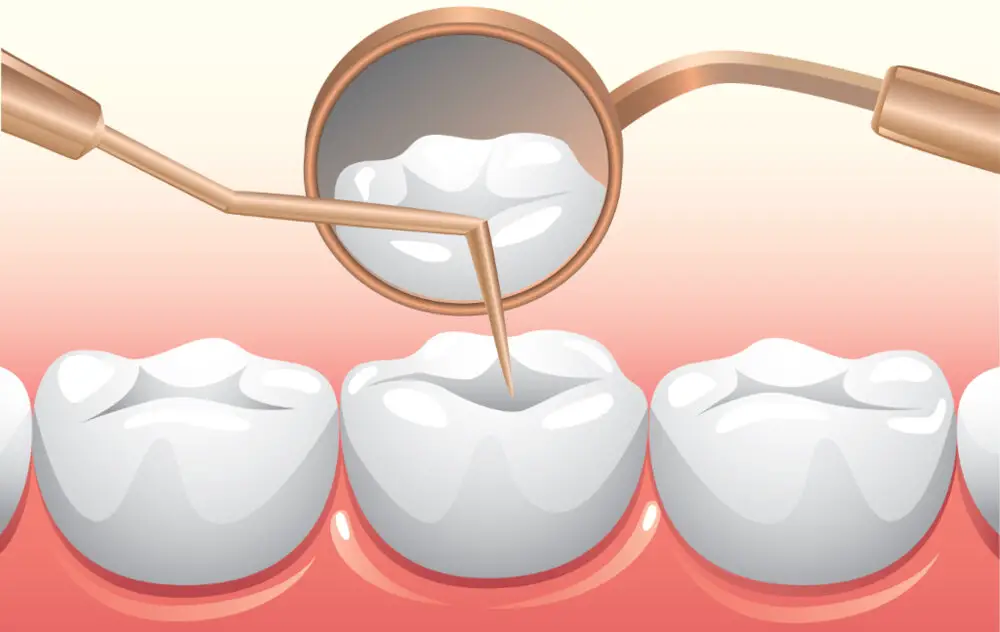
Tooth sensitivity is a common dental problem that causes discomfort or pain in the teeth when exposed to certain stimuli such as hot or cold drinks, sweet foods, or acidic beverages. There are several causes of tooth sensitivity, including enamel erosion, gum recession, cavities, and cracked teeth. Enamel erosion is one of the most common causes of tooth sensitivity. The enamel is the hard outer layer of the tooth that protects it from damage and decay. When the enamel wears away, the underlying dentin becomes exposed, making the tooth sensitive to hot, cold, sweet, or sour foods and drinks. Enamel erosion can be caused by a variety of factors, including acidic foods and drinks, brushing too hard, and acid reflux. Gum recession is another cause of tooth sensitivity. Gum recession occurs when the gum tissue that surrounds the teeth pulls back, exposing the root surface of the tooth. The root surface is not protected by enamel, making it sensitive to hot, cold, sweet, and sour foods and drinks. Gum recession can be caused by a variety of factors, including periodontal disease, brushing too hard, and aging. Cavities and cracked teeth can also cause tooth sensitivity. Cavities are holes in the teeth caused by decay, while cracked teeth are teeth that have been damaged by trauma or wear and tear. Both cavities and cracked teeth can expose the sensitive dentin layer of the tooth, causing pain or discomfort when eating sweet or sour foods.
Acid erosion is a common cause of tooth sensitivity. It occurs when the enamel of the teeth is worn away by acidic substances, such as soft drinks, citrus fruits, or even frequent vomiting due to certain medical conditions. When the enamel is compromised, the underlying dentin layer is exposed, which contains tiny tubules that lead to the nerve endings of the tooth. This exposure can result in pain or sensitivity when consuming hot, cold, or sweet foods. Acid erosion can also lead to discoloration, thinning, and chipping of the teeth, making them more susceptible to decay. Therefore, it’s important to take preventive measures, such as reducing the consumption of acidic foods and drinks, using fluoride toothpaste, and seeking dental treatment to prevent further damage.
Gum recession is a common dental problem that occurs when the gum tissue surrounding teeth pulls back, exposing the tooth roots. This condition can lead to tooth sensitivity, as the exposed roots lack the protective layer of enamel that covers the crown of the tooth. Gum recession can be caused by a variety of factors, including poor oral hygiene, gum disease, aging, and aggressive brushing. Symptoms of gum recession may include tooth sensitivity, visible tooth roots, and increased susceptibility to tooth decay and gum disease. Treatment options for gum recession depend on the severity of the condition and may include deep cleaning, gum grafting surgery, and lifestyle changes such as improving oral hygiene habits.
Tooth decay is a common dental problem that occurs when the acids produced by bacteria in the mouth dissolve the protective layer of the teeth, known as enamel. This process can be accelerated by the consumption of sugary and acidic foods and drinks, which provide an ideal environment for bacteria to thrive. If left untreated, tooth decay can lead to cavities, toothaches, and even tooth loss. To prevent tooth decay, it is important to maintain good oral hygiene, including regular brushing and flossing, as well as visiting a dentist for routine check-ups and cleanings. Additionally, limiting the intake of sugary and acidic foods and drinks can help reduce the risk of tooth decay and maintain healthy teeth and gums.
Teeth grinding, also known as bruxism, is a condition where an individual clenches or grinds their teeth unconsciously, often during sleep. This condition can lead to various dental problems, including tooth sensitivity, jaw pain, and headaches. The causes of teeth grinding are not entirely clear, but stress, anxiety, and an abnormal bite are thought to contribute to the condition. Treatment options for teeth grinding may include stress reduction techniques, oral appliances such as mouth guards, and in severe cases, medication. If left untreated, teeth grinding can lead to permanent damage to the teeth and jaw, so it is essential to seek professional dental care if you suspect you may be grinding your teeth.
Eating Sweets and Tooth Sensitivity

Tooth sensitivity is a common problem that affects millions of people worldwide. It is characterized by a sharp, shooting pain that occurs when you eat or drink something hot, cold, sweet, or sour. One of the most common triggers of tooth sensitivity is eating sweets. When you eat sugary foods, the bacteria in your mouth feed on the sugar and produce acid. This acid can erode your tooth enamel, which is the hard outer layer of your teeth that protects the sensitive nerves inside. Over time, this erosion can cause the nerves in your teeth to become exposed, leading to sensitivity and pain. To prevent tooth sensitivity from eating sweets, it’s essential to take good care of your teeth. This includes brushing your teeth twice a day with a fluoride toothpaste, flossing daily, and visiting your dentist regularly for checkups and cleanings. You should also be mindful of your diet and try to limit your intake of sugary foods and drinks. If you do indulge in sweets, try to brush your teeth afterward or rinse your mouth with water to help neutralize the acid and protect your tooth enamel. By taking these steps, you can help prevent tooth sensitivity and keep your teeth healthy and pain-free.
Sugary foods cause sensitivity in teeth due to the erosion of tooth enamel. When sugar and bacteria present in the mouth combine, they create acid that attacks the tooth enamel, causing it to wear away. As the enamel thins, the dentin layer underneath becomes exposed, which contains tiny nerve endings that are sensitive to hot, cold, and sweet foods. The more sugar consumed, the more acid produced, and the more enamel lost, leading to increased sensitivity. Additionally, frequent snacking on sugary foods can also contribute to tooth sensitivity as it doesn’t give the saliva enough time to neutralize the acid. Therefore, avoiding excessive consumption of sugary foods and maintaining proper oral hygiene can help prevent tooth sensitivity.
Sugar is one of the main culprits behind the formation of dental plaque, the sticky film of bacteria that coats teeth and leads to decay and sensitivity. When we consume sugary foods and drinks, the bacteria in our mouths feed on the sugar and produce acid as a byproduct. This acid erodes the enamel of our teeth, weakening them and making them more susceptible to sensitivity. As the bacteria continue to feed on the sugar, they multiply and form a sticky film on the teeth, which can be difficult to remove through brushing alone. Over time, this plaque can harden into tartar, which can only be removed by a dentist or hygienist. To prevent sensitivity and decay, it’s important to limit our intake of sugary foods and drinks and to practice good oral hygiene habits.
The connection between acid and sensitivity in teeth is a complex relationship that can lead to discomfort and pain. Acidic foods and drinks can erode the protective layer of enamel on teeth, exposing the sensitive dentin underneath. This can cause a sharp, shooting pain when consuming sweet or cold foods. Additionally, acid can also irritate the gum tissue, causing them to recede and expose the tooth’s root, which is even more sensitive. To prevent acid erosion and sensitivity, it’s crucial to limit acidic foods and drinks, brush with a soft-bristled toothbrush, and use fluoride toothpaste to strengthen the enamel.
Treatment and Prevention of Tooth Sensitivity
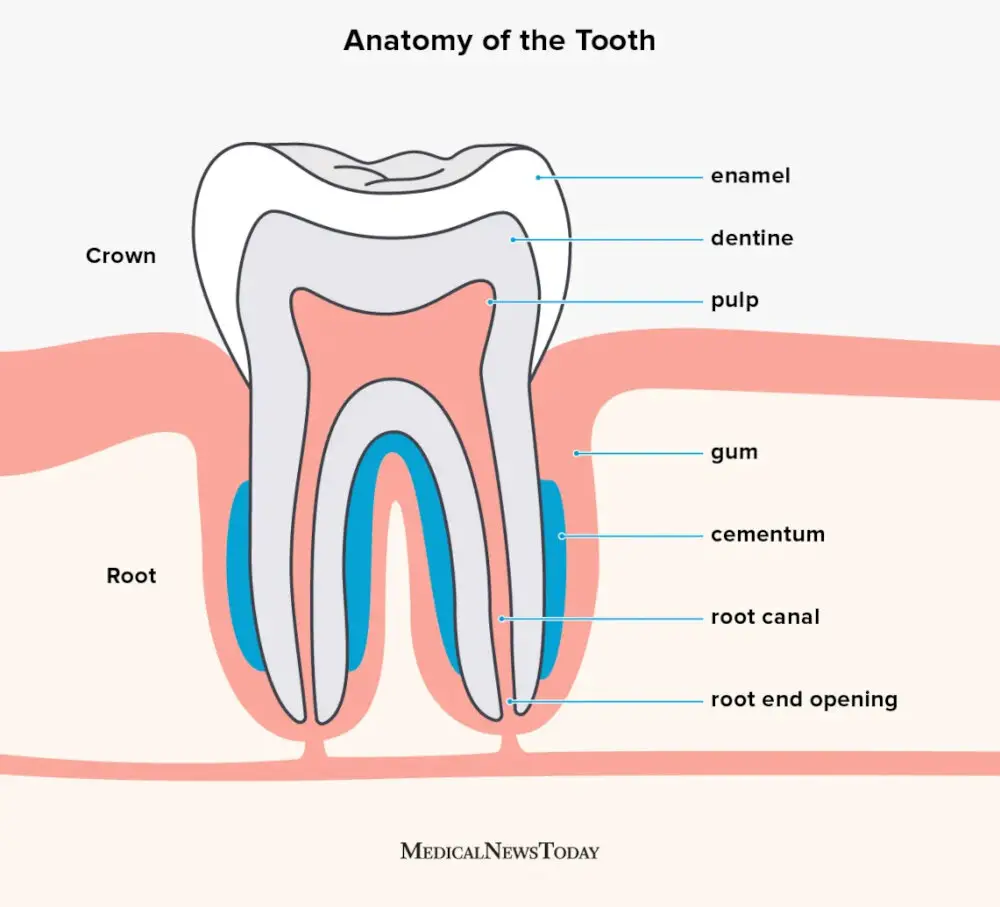
Tooth sensitivity can be a painful and frustrating condition to deal with, but there are several treatment and prevention methods available. One of the most effective treatments for tooth sensitivity is the use of desensitizing toothpaste. These toothpastes contain ingredients, such as potassium nitrate or strontium chloride, that help to block the tiny tubules in the dentin and prevent sensitivity. Additionally, fluoride treatments can also help to strengthen the enamel and reduce sensitivity. In more severe cases, a dentist may recommend a dental restoration, such as a filling or crown, to cover and protect the exposed root surface. Prevention is also key when it comes to tooth sensitivity. One of the most important steps you can take is to practice good oral hygiene. This includes brushing your teeth twice a day with a soft-bristled toothbrush, flossing daily, and using mouthwash. Additionally, avoiding acidic and sugary foods can help to prevent enamel erosion and sensitivity. If you do consume these types of foods, it is important to rinse your mouth with water immediately afterward. Finally, regular dental check-ups are essential for maintaining good oral health and identifying any potential problems, including tooth sensitivity, before they become more serious.
Desensitizing toothpaste is an effective solution for those who experience tooth sensitivity. This type of toothpaste contains ingredients such as potassium nitrate or stannous fluoride, which work by blocking the tiny tubules in the dentin (the layer beneath the enamel) that lead to the nerves of the teeth. By blocking these tubules, the toothpaste can reduce the sensitivity caused by hot or cold temperatures, acidic or sweet foods, or even brushing. Desensitizing toothpaste can provide relief within a few days of use and is often recommended by dentists as part of a comprehensive treatment plan for tooth sensitivity. However, it’s important to note that desensitizing toothpaste is not a cure for tooth sensitivity, and it’s still essential to address the underlying causes of sensitivity through proper oral hygiene and professional dental care.
Fluoride treatments are a preventive measure for tooth sensitivity and decay. Fluoride is a mineral that strengthens tooth enamel and makes it more resistant to acid attacks from bacteria and sugary foods. Fluoride treatments can be administered by a dentist or at home with fluoride toothpaste or mouthwash. The fluoride is absorbed into the tooth enamel, making it more resistant to acid erosion and strengthening the tooth structure. Regular fluoride treatments can help prevent tooth decay and sensitivity, especially in people who have a high risk of developing cavities or have weakened tooth enamel. It is important to consult with a dentist to determine the best fluoride treatment plan for your individual needs.
Dental procedures such as bonding or crowns are commonly used to restore damaged or decayed teeth, which can alleviate tooth sensitivity. Bonding involves applying a tooth-colored resin material to the damaged area of the tooth and then shaping and polishing it to match the surrounding teeth. This procedure is best suited for minor cosmetic issues or small cavities. Crowns, on the other hand, are used when a tooth is severely damaged or decayed and require more extensive restoration. A crown is a cap that is placed over the tooth, covering the entire visible portion and providing strength and protection. With these dental procedures, patients can restore their damaged teeth and enjoy their favorite sweets without experiencing any discomfort or pain.
If you’re experiencing tooth sensitivity when you eat sweets, there are several tips you can try to prevent it from happening. Firstly, avoid consuming too many sugary foods and drinks, as they can erode your enamel and make your teeth more sensitive. Secondly, use a soft-bristled toothbrush and brush gently, as aggressive brushing can also wear down your enamel. Furthermore, consider using toothpaste specifically designed for sensitive teeth, as it can help to reduce discomfort and strengthen your enamel. Finally, make sure to see your dentist regularly for check-ups and cleanings, as they can identify and treat any underlying issues that may be causing your tooth sensitivity. By following these tips, you can help to prevent tooth sensitivity and enjoy your favorite sweet treats without any discomfort.
In summary, tooth sensitivity is a common problem that can be caused by a variety of factors such as gum disease, tooth decay, and enamel erosion. When we consume sweets, the sugar interacts with bacteria in our mouth to produce acid which can weaken enamel and expose the underlying nerves of the tooth. This results in a painful sensation when eating sweet or acidic foods. To prevent this, it is important to maintain good oral hygiene, use desensitizing toothpaste, and avoid excessive consumption of sugary or acidic foods. Additionally, seeking professional dental care can help identify and treat any underlying issues causing tooth sensitivity.
Maintaining oral health is crucial for overall wellbeing. Poor oral hygiene can lead to several dental problems such as cavities, gum disease, and tooth sensitivity. These issues can cause discomfort, pain, and even tooth loss. Furthermore, poor oral health has been linked to various systemic diseases such as diabetes, heart disease, and stroke. Regular brushing, flossing, and dental check-ups can prevent these issues and help maintain healthy teeth and gums. A diet that is low in sugar and high in nutrient-rich foods can also support oral health. By taking care of our teeth and gums, we can avoid the discomfort of tooth sensitivity and promote our overall health and wellbeing.
If you experience tooth sensitivity when consuming sweet foods or drinks, it is important to seek professional help from a dentist. Tooth sensitivity can be a sign of underlying dental issues that require treatment, such as cavities, gum disease, or enamel erosion. Ignoring the problem can lead to further damage and potentially result in the loss of teeth. Seeking professional help can provide early diagnosis and effective treatment options to alleviate tooth pain and prevent further damage. Don’t let tooth sensitivity affect your quality of life, take action and seek help from a dental professional today.
Conclusion

In conclusion, tooth sensitivity is a common dental problem that affects many people around the world. The surprising truth behind tooth sensitivity when eating sweets is that it is caused by the exposure of the dentin layer of the tooth. This can occur due to various factors such as tooth decay, gum disease, teeth grinding, or even genetics. It is important to take care of your teeth by maintaining good oral hygiene, using fluoride toothpaste, and visiting your dentist regularly. By doing so, you can prevent tooth sensitivity and enjoy your favorite sweets without any discomfort. Understanding the root cause of tooth sensitivity is the first step towards finding the right treatment and protecting your teeth in the long run.

